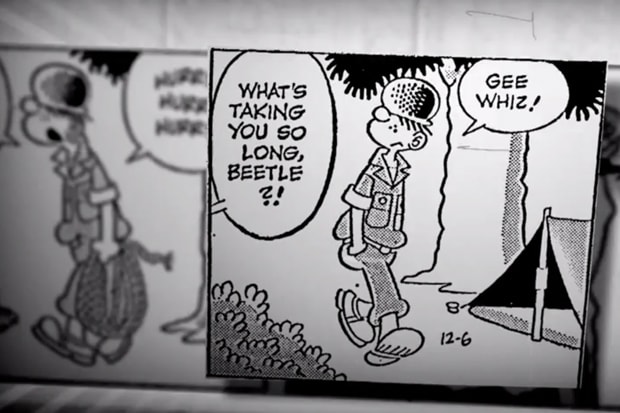Documentary Review: Beats, Rhymes & Life: The Travels of A Tribe Called Quest
By now, it would probably be difficult to gather a crowd of internet-savvy A Tribe Called Quest

By now, it would probably be difficult to gather a crowd of internet-savvy A Tribe Called Quest fans and pick out someone who hasn’t heard about the drama involved with Beats, Rhymes & Life: The Travels of A Tribe Called Quest. Let’s face it, the sheisty actions of director Michael Rapaport and the legendary hip-hop group’s negative feelings about him and the film have nearly outweighed — and simultaneously helped catapult — the buzz surrounding the film itself over the past few months. However, with the flick hitting select theaters today, Friday, July 8, it seems as though the storm has calmed a bit. Whether or not Q-Tip’s positive remarks about the documentary on Angie Martinez’s radio show earlier this week helped settle your stomach at all, you should consider making it a mission this weekend to hunt down one of the select theaters showing it.
On Wednesday night, an early screening of Beats, Rhymes & Life took place at Voyeur in West Hollywood. The packed venue was sprinkled with industry folk and music artists, but arguably the most talked about figure in the building was the film’s controversial director. After the documentary was shown on a projector screen, Rapaport took the stage to answer some questions. He didn’t go into detail about the accusations against him, but he did speak a bit about the on-and-off friendship between two of ATCQ’s most beloved members, Q-Tip and Phife Dawg. Their relationship is a focal point of the film; but unfortunately, their lengthy rough patch that began with the split-up of the group in 1998 is dramatic and overemphasized. Other than that bitter section of the documentary, which falls about ¾ of the way through, Beats, Rhymes & Life is an enjoyable, insightful watch.
The film follows in chronological order from the origins of the group to present day. All five albums and pivotal points in the ATCQ legacy — including the formation of the Native Tongues supergroup — are explored in depth, as is the reality of what was going on behind the scenes throughout it all. The musical progression and impact of ATCQ is expressed through commentary from the likes of Pharrell, Common, the Beastie Boys, Large Professor, De La Soul, Black Thought and ?uestlove of The Roots, and music executive Barry Weiss. With rare footage, background into some of the group’s most famous songs and lyrics, a touching and sad look into Phife’s health problems, and multi-sided explanations as to why the group called it quits with one album left on their Jive contract, even the biggest ATCQ fans may walk away from the theater with a head full of new knowledge.
But more than anything, viewers will likely find themselves laughing throughout a plethora of the hour-and-a-half film. The humor of Q-Tip, Ali Shaheed Muhammad, Phife and Jarobi is vivacious — especially when they talk about each other — and their chemistry is palpable. The role each of them played in the success of ATCQ is analyzed thoroughly, as are the sentiments each of them have had toward each other throughout the years. Each of their accounts of the past two-and-a-half decades is unique, but they all fit together to form a sensical, harmonious puzzle of the ATCQ legacy.
That being said, the hostility between Q-Tip and Phife does cause the construing of some opposite perspectives. When it got to the point in which the film honed in on this, the crowd on Wednesday night cringed. However, Rapaport left everyone with some words of optimism. When the final question was selected and he was asked about the current state of Tip and Phife’s relationship, Rapaport gave a simple, assuring response: “They’re brothers.”

























